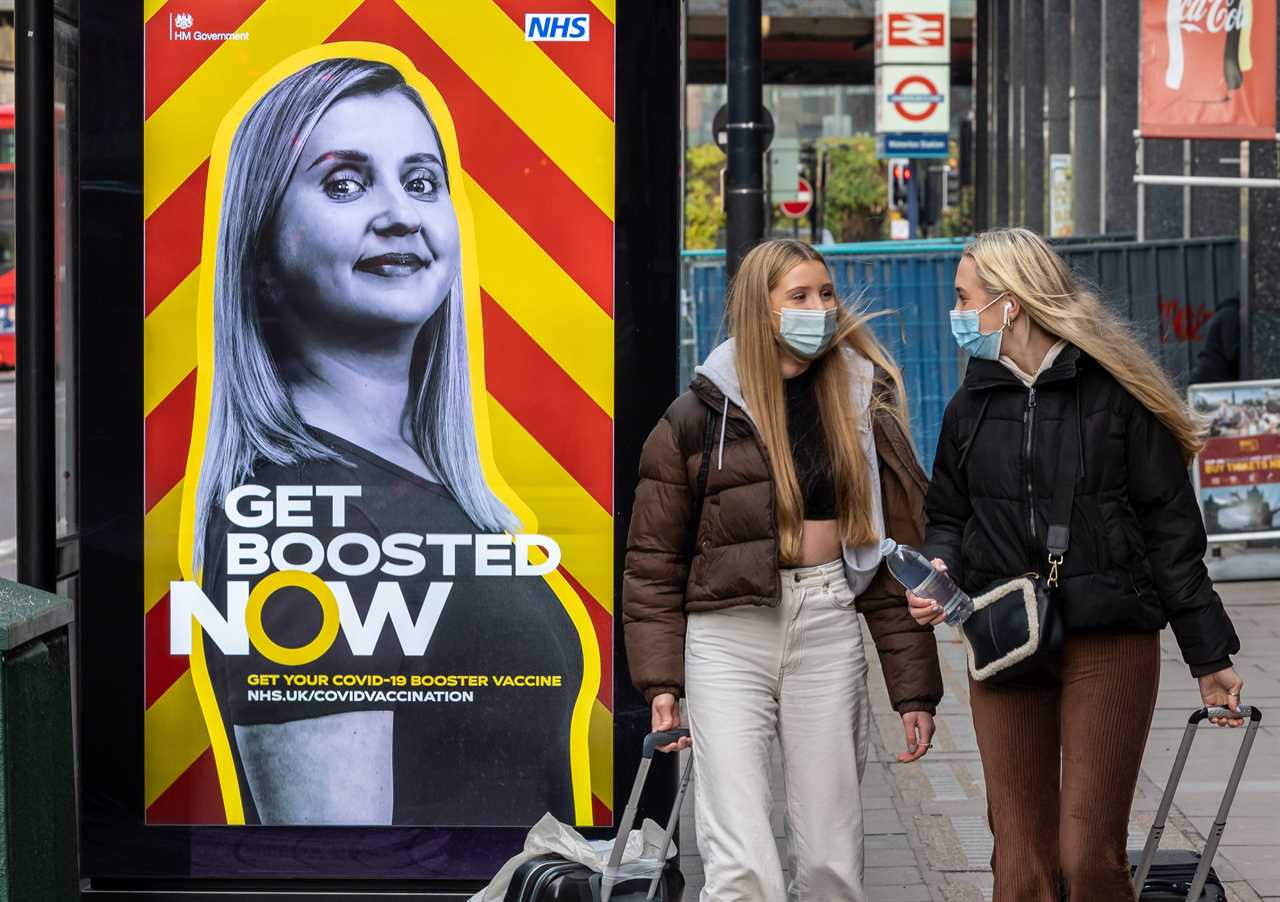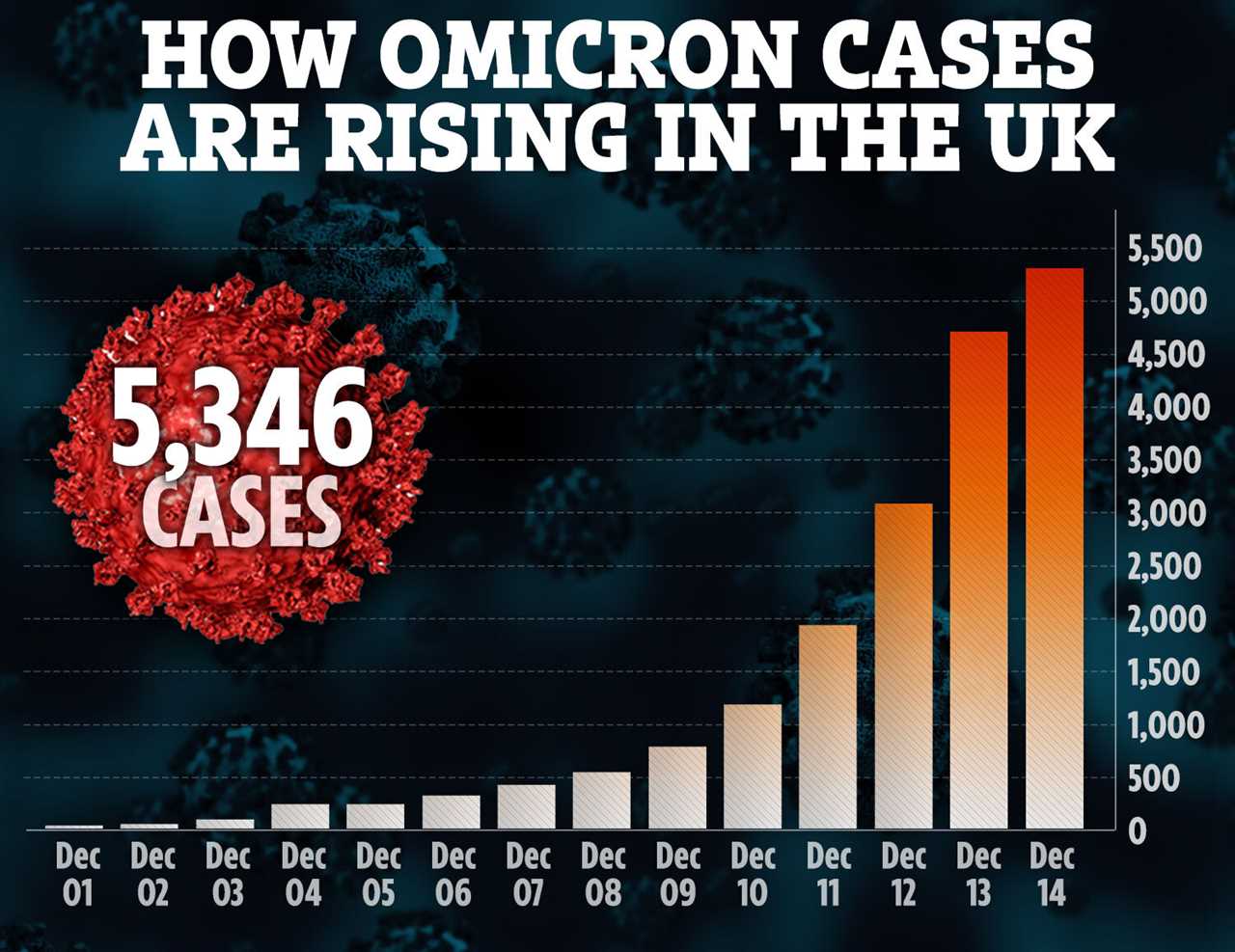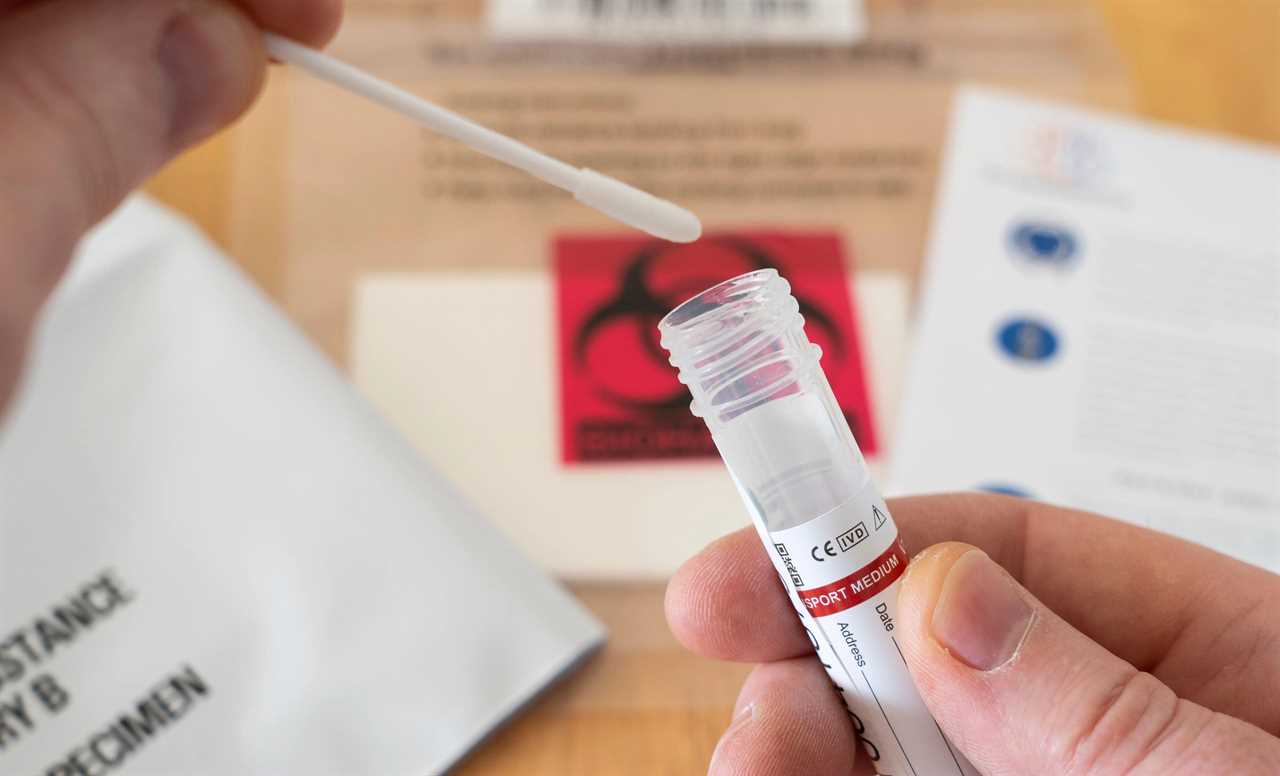BRITS who test positive for Covid from today will have to self-isolate on Christmas Day as Omicron rips through the country.
Data suggests more than a million people may have to miss the December 25 celebrations after catching the virus.


Chief medical officer Professor Chris Whitty warned the Cabinet yesterday that Omicron is spreading “unbelievably fast”.
The rapid spread of the strain means four times more people could be self-isolating this Christmas Day than last year’s, according to official estimates.
It comes as 59,610 new Covid cases were reported yesterday, the highest daily number since January 9, and up more than 30 per cent in a week.
Another 633 Omicron cases were confirmed, taking the total number to 5,346.
Hundreds of thousands of people are likely to test positive for Covid between now and Christmas, ruining their festivities as Omicron spreads rapidly.
Government self-isolation rules mean if you get a positive test result but don’t have symptoms you must self-isolate for the next 10 days.
If you develop symptoms during your self-isolation period, it means you would miss Christmas.
The rules state: “If you are isolating because of a positive test result but did not have any symptoms, and you develop Covid-19 symptoms within your isolation period, start a new 10 day isolation period by counting 10 full days from the day following your symptom onset.”
Health Secretary Sajid Javid told MPs that even if Omicron is less severe than Delta it spreads so quickly “it still has the potential to overwhelm the NHS”.
Modellers fear Omicron cases may be “200,000 a day” already and “doubling every two to three days”.
OMICRON SURGE
In a bleak update to the Cabinet yesterday, Boris Johnson and Chief Medical Officer Professor Chris Whitty warned the new variant could lead to serious staff shortages across Britain.
The PM said a “huge spike in Omicron is coming” with public health officials fearing restrictions could last up to eight weeks.

Read our Covid-19 live blog for the latest updates
The pair said that even the most conservative estimates suggested the virus would unleash a tidal wave of new cases and hospitalisations.
It would mean hundreds of thousands of people forced off work and into isolation.
Prof Whitty warned NHS workers faced being hospitalised themselves as Omicron peaked in January.
Meanwhile, vaccine passports will be needed for nightclubs and football matches from today after MPs voted to approve Mr Johnson’s Plan B.
SELF-ISOLATION
The PM suffered the biggest revolt of his premiership as almost 100 Tory MPs rebelled against his measures to tackle Omicron.
As Covid infects several thousands a day, Brits are scrambling to get an in-demand PCR test.
But the testing system faltered yesterday, with no slots available for walk-in PCR tests across England in the morning.
It comes as a study showed two doses of the Pfizer Covid vaccine was 70 per cent effective in stopping severe illness from Omicron.
From yesterday, Brits who have contact with someone who has any Covid variant should take seven daily lateral flow tests under new government measures.
NEW YEAR PEAK
The new guidance applies to double jabbed people as well – but the 10-day isolation period for Omicron contacts has been axed.
Unvaccinated adults must still self-isolate for 10 days if they have contact with anyone who tests positive for any Covid variant.
Mr Johnson had introduced tougher rules on Omicron contacts – including the double jabbed – having to isolate for 10 days last month.
But on Sunday, Mr Javid announced those measures to curb the spread of the infectious super-strain were being axed from yesterday.
There were fears among ministers and businesses that the fast-spreading Omicron variant would lead to a new “pingdemic”.
Experts think the wave could peak in January or February, as Omicron gains dominance in the UK over the next few days.
It has led to fears Mr Johnson could plunge England into tougher restrictions before New Year’s Eve to prevent more cases.
Trending In The News revealed that gloomy officials are drawing up proposals to restrict numbers in pubs or close them completely if required.







